BMW i4 vs Mercedes EQA - Differences and prices compared
Compare performance (601 HP vs 292 HP), boot space and price (49400 £ vs 44200 £) at a glance. Find out which car is the better choice for you – BMW i4 or Mercedes EQA?
Costs and Efficiency:
Looking at overall running costs, both models reveal some interesting differences in everyday economy.
Mercedes EQA has a somewhat advantage in terms of price – it starts at 44200 £, while the BMW i4 costs 49400 £. That’s a price difference of around 5134 £.
In terms of energy consumption, the advantage goes to the Mercedes EQA: with 14.40 kWh per 100 km, it’s barely noticeable more efficient than the BMW i4 with 14.70 kWh. That’s a difference of about 0.30 kWh.
As for range, the BMW i4 performs minimal better – achieving up to 613 km, about 52 km more than the Mercedes EQA.
Engine and Performance:
Under the bonnet, it becomes clear which model is tuned for sportiness and which one takes the lead when you hit the accelerator.
When it comes to engine power, the BMW i4 has a convincingly edge – offering 601 HP compared to 292 HP. That’s roughly 309 HP more horsepower.
In acceleration from 0 to 100 km/h, the BMW i4 is decisively quicker – completing the sprint in 3.70 s, while the Mercedes EQA takes 6 s. That’s about 2.30 s faster.
In terms of top speed, the BMW i4 performs clearly perceptible better – reaching 225 km/h, while the Mercedes EQA tops out at 160 km/h. The difference is around 65 km/h.
There’s also a difference in torque: BMW i4 pulls evident stronger with 795 Nm compared to 520 Nm. That’s about 275 Nm difference.
Space and Everyday Use:
Cabin size, boot volume and payload all play a role in everyday practicality. Here, comfort and flexibility make the difference.
Both vehicles offer seating for 5 people.
In curb weight, Mercedes EQA is minimal lighter – 2045 kg compared to 2070 kg. The difference is around 25 kg.
In terms of boot space, the BMW i4 offers clearly perceptible more room – 470 L compared to 340 L. That’s a difference of about 130 L.
In maximum load capacity, the Mercedes EQA performs slight better – up to 1320 L, which is about 30 L more than the BMW i4.
When it comes to payload, BMW i4 a bit takes the win – 480 kg compared to 425 kg. That’s a difference of about 55 kg.
Who comes out on top?
Overall, the BMW i4 shows itself to be dominates this comparison and secures the title of DriveDuel Champion.
It convinces with the more balanced overall package and proves to be the more versatile choice for everyday use.
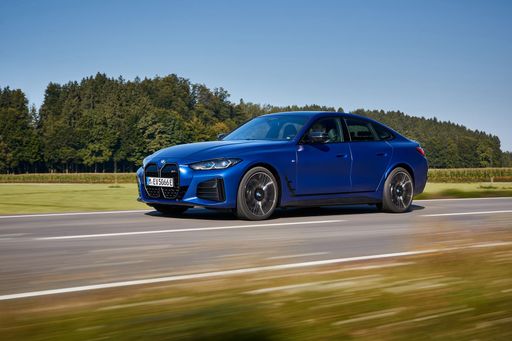
BMW i4
Costs and Consumption
View detailed analysis
Engine and Performance
View detailed analysis
Dimensions and Body
View detailed analysis
BMW i4
The BMW i4 arrives with the poise of a classic Gran Coupé, marrying BMW's playful handling with a sleek, modern interior that makes switching to electric feel like an upgrade rather than a compromise. For buyers who want a practical daily driver that still enjoys a spirited back-road run, the i4 quietly delivers smiles and a surprising dose of driver engagement.
details
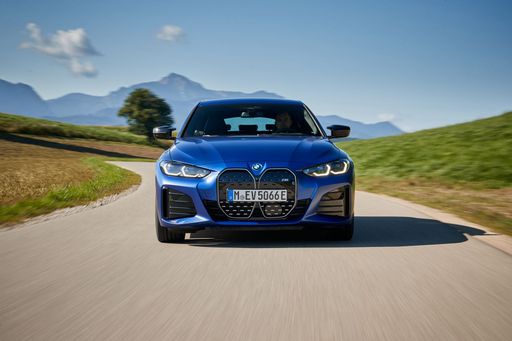
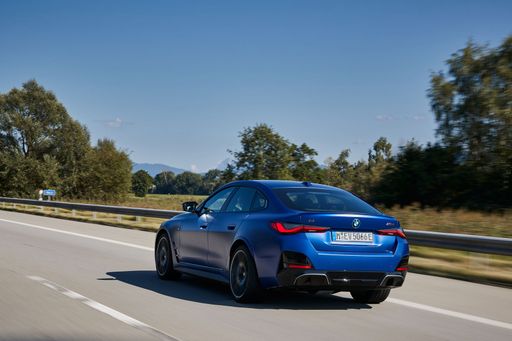
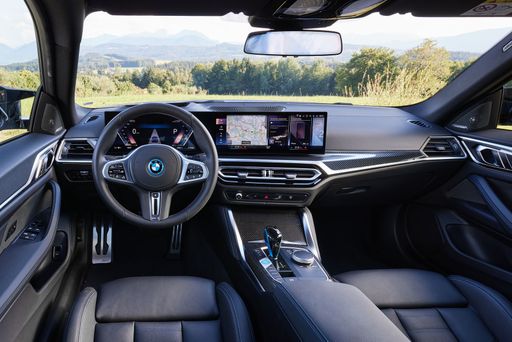
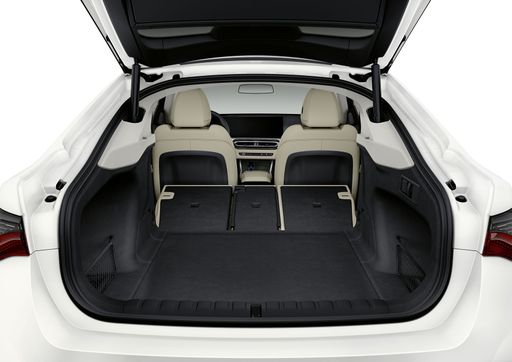
Mercedes EQA
The Mercedes EQA slips into the electric crossover ranks with the brand’s familiar luxury polish, offering a quiet, fuss-free drive that feels perfectly at home in the city or on a country escape. Inside it’s neatly finished and tech-forward, projecting grown-up refinement even if it plays things a bit safe for anyone chasing outright excitement.
details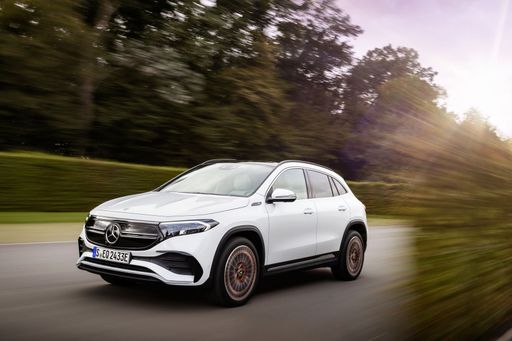
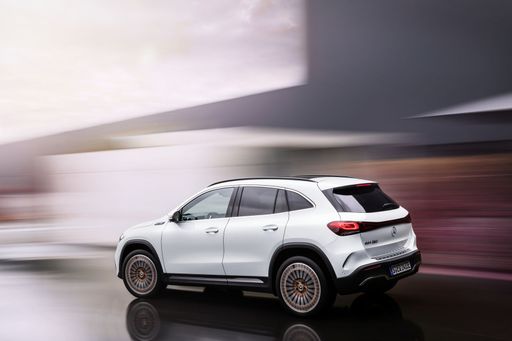
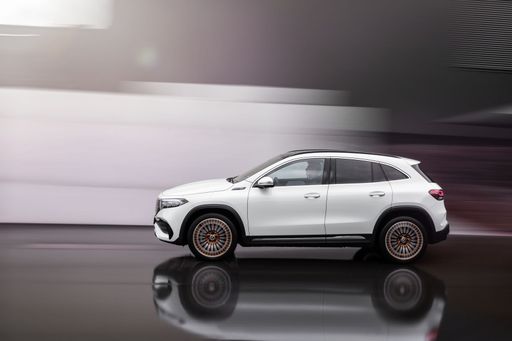
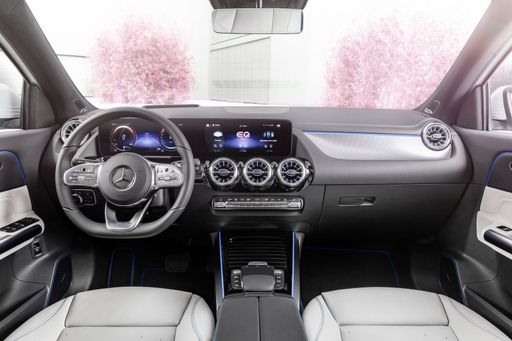

|

|
|
|
|
Costs and Consumption |
|
|---|---|
|
Price
49400 - 62500 £
|
Price
44200 - 57400 £
|
|
Consumption L/100km
-
|
Consumption L/100km
-
|
|
Consumption kWh/100km
14.7 - 16.7 kWh
|
Consumption kWh/100km
14.4 - 16.9 kWh
|
|
Electric Range
514 - 613 km
|
Electric Range
476 - 561 km
|
|
Battery Capacity
67.1 - 81.3 kWh
|
Battery Capacity
70.50 kWh
|
|
co2
0 g/km
|
co2
0 g/km
|
|
Fuel tank capacity
-
|
Fuel tank capacity
-
|
Dimensions and Body |
|
|---|---|
|
Body Type
Hatchback
|
Body Type
SUV
|
|
Seats
5
|
Seats
5
|
|
Doors
5
|
Doors
5
|
|
Curb weight
2070 - 2285 kg
|
Curb weight
2045 - 2115 kg
|
|
Trunk capacity
470 L
|
Trunk capacity
340 L
|
|
Length
4783 mm
|
Length
4463 mm
|
|
Width
1852 mm
|
Width
1834 mm
|
|
Height
1448 mm
|
Height
1608 - 1613 mm
|
|
Max trunk capacity
1290 L
|
Max trunk capacity
1320 L
|
|
Payload
445 - 480 kg
|
Payload
425 kg
|
Engine and Performance |
|
|---|---|
|
Engine Type
Electric
|
Engine Type
Electric
|
|
Transmission
Automatic
|
Transmission
Automatic
|
|
Transmission Detail
Reduction Gearbox
|
Transmission Detail
Reduction Gearbox
|
|
Drive Type
Rear-Wheel Drive, All-Wheel Drive
|
Drive Type
Front-Wheel Drive, All-Wheel Drive
|
|
Power HP
286 - 601 HP
|
Power HP
190 - 292 HP
|
|
Acceleration 0-100km/h
3.7 - 6 s
|
Acceleration 0-100km/h
6 - 8.6 s
|
|
Max Speed
190 - 225 km/h
|
Max Speed
160 km/h
|
|
Torque
400 - 795 Nm
|
Torque
385 - 520 Nm
|
|
Number of Cylinders
-
|
Number of Cylinders
-
|
|
Power kW
210 - 442 kW
|
Power kW
140 - 215 kW
|
|
Engine capacity
-
|
Engine capacity
-
|
General |
|
|---|---|
|
Model Year
2025
|
Model Year
2024 - 2025
|
|
CO2 Efficiency Class
A
|
CO2 Efficiency Class
A
|
|
Brand
BMW
|
Brand
Mercedes-Benz
|
What drivetrain options does the BMW i4 have?
The BMW i4 is available as Rear-Wheel Drive or All-Wheel Drive.
The prices and data displayed are estimates based on German list prices and may vary by country. This information is not legally binding.
